Betta fish are beautiful, popular pet fish that require a variety of elements to thrive. One of the most important factors for keeping betta fish healthy is providing them with light.
But do betta fish really need light? This article will explore this question and provide insight into what kind of lighting might be best for your betta friend.
The purpose of this article is to help you make informed decisions about whether or not your betta needs light and how much they should get. We’ll cover things like why they need it, how long they should have it on, types of lights suitable for them and more!
By the end, you’ll know exactly what type of lighting environment your betta needs in order to stay happy and healthy.
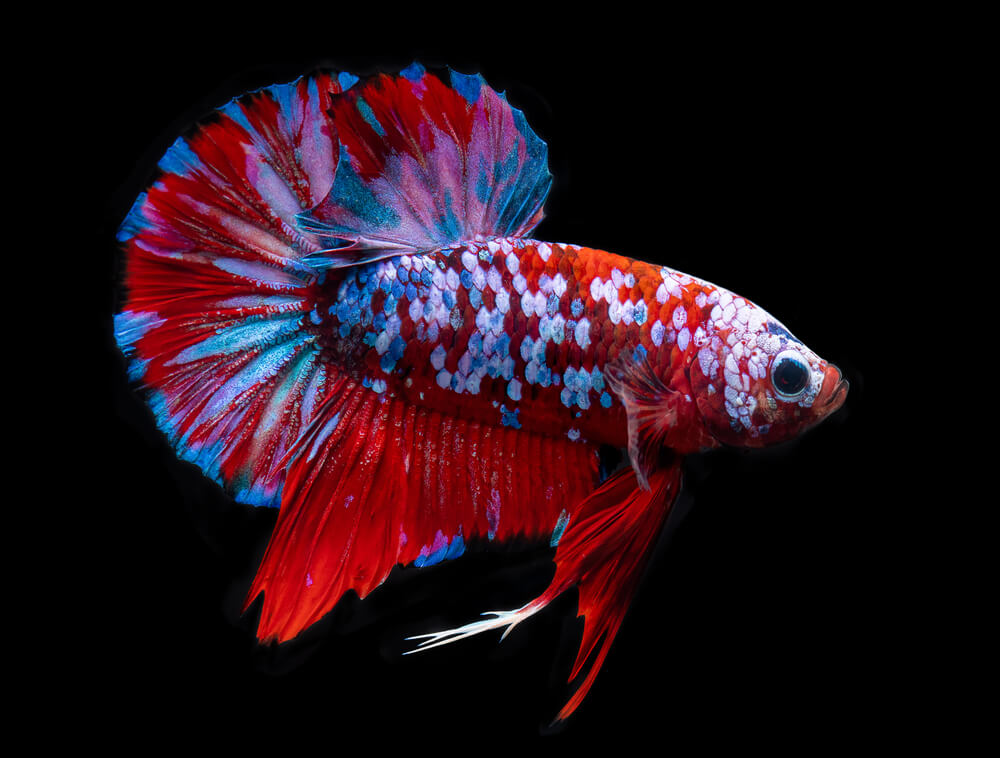
Benefits Of Lighting For Betta Fish
No one ever asked whether betta fish need light, and why should they? After all, these colorful little creatures have been living in murky puddles and streams for centuries.
But here’s the thing: lighting can actually benefit your betta friend!
It’s true – providing some form of illumination can help make their lives a lot easier.
For starters, it will give them something to explore during the day.
These inquisitive critters love investigating their surroundings, so giving them an illuminated environment helps keep them engaged (and away from boredom).
Plus, if you’re looking to create a more natural-looking home for your fishy buddy, then adding some lights could be just the ticket.
Finally, let’s not forget that having extra light around can also improve the overall look of your aquarium or tank.
Lights add color to any space, making it brighter and more vibrant – perfect for showing off those beautiful scales!
So why not treat your betta pal to some extra rays today? You’ll both be glad you did.
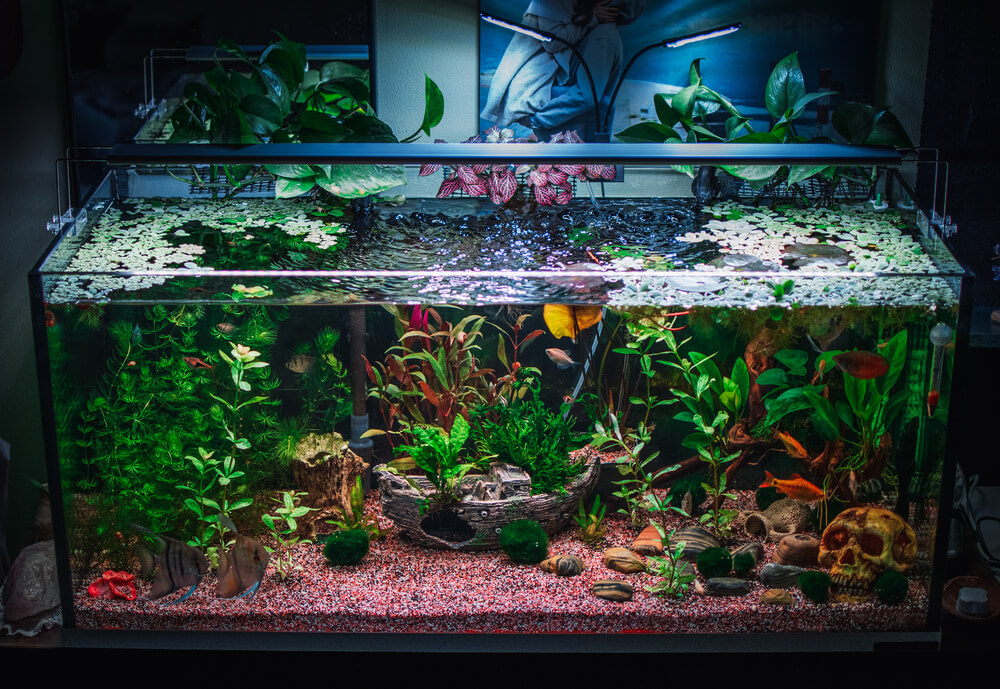
Understanding Betta Fish Lighting Needs
Betta fish are a unique and colorful species of freshwater fish that require special care to ensure their health. One key element of successful betta keeping is providing the correct amount of light for your pet fish. Without the right type and length of lighting, many common betta illnesses can result due to stress or improper nutrition.
In order to understand how much lighting your betta needs, it’s important to first recognize what kind of habitat they come from in nature. Wild bettas live in shallow water under dense vegetation, so they receive very little direct sunlight on a daily basis. In captivity, it’s best to mimic this environment as closely as possible by providing just enough artificial light each day without over-exposing them.
The ideal duration for betta lighting should be between 8-12 hours per day, depending on the season and other environmental factors such as temperature and humidity. The intensity of the lights should also be kept low since strong light can cause stress in these delicate creatures.
Additionally, you may want to consider adding a timer to automatically switch off your lights at night when natural darkness would occur in their native habitat. Taking these steps will help promote healthy behavior in your betta and keep them happy!
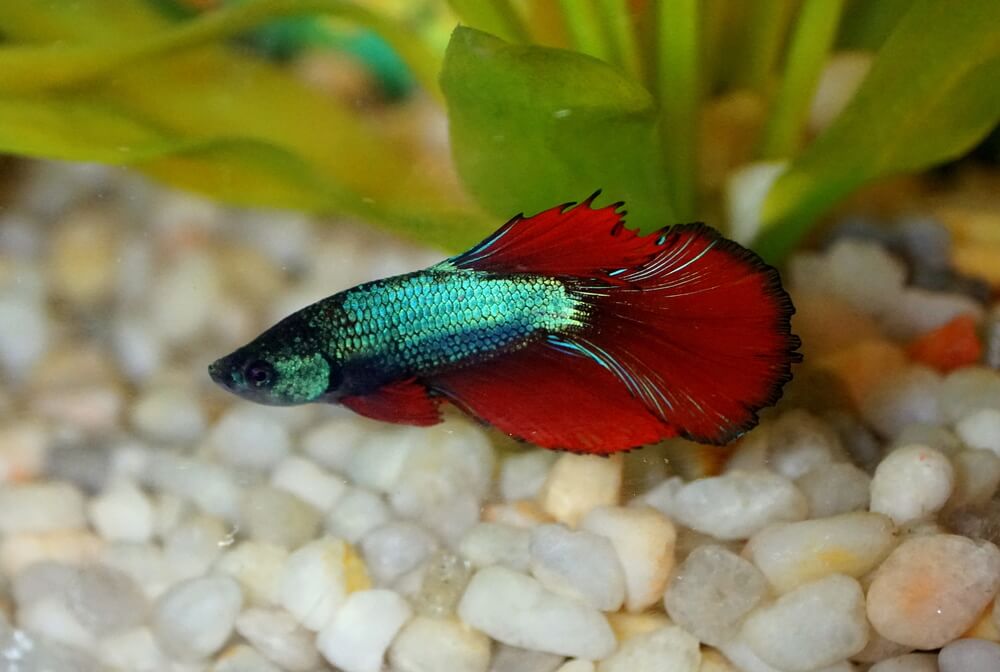
Types Of Lights Suitable For Betta Fish
Believe it or not, light can actually be harmful to betta fish! While these vibrant creatures need some lighting in order to survive and thrive, too much of it can cause stress and even shorten their life expectancy.
So what kind of lights should you give your betta? Let’s take a look. When it comes to keeping your betta healthy, the key is moderation – this applies for both light and darkness.
It’s important to provide them with 8-12 hours of natural sunlight or artificial light each day so that they can experience regular cycles. Make sure you never leave the lights on continuously as this could put unnecessary strain on your pet’s eyes.
For artificial lighting, opt for either full spectrum LED lights or fluorescent bulbs designed specifically for aquariums – make sure they are safe to use around water. Both kinds will help keep your tank warm while also providing enough illumination for your fishy friend to see its surroundings clearly.
And don’t worry if they seem inactive during the night – bettas tend to rest when it gets dark out!
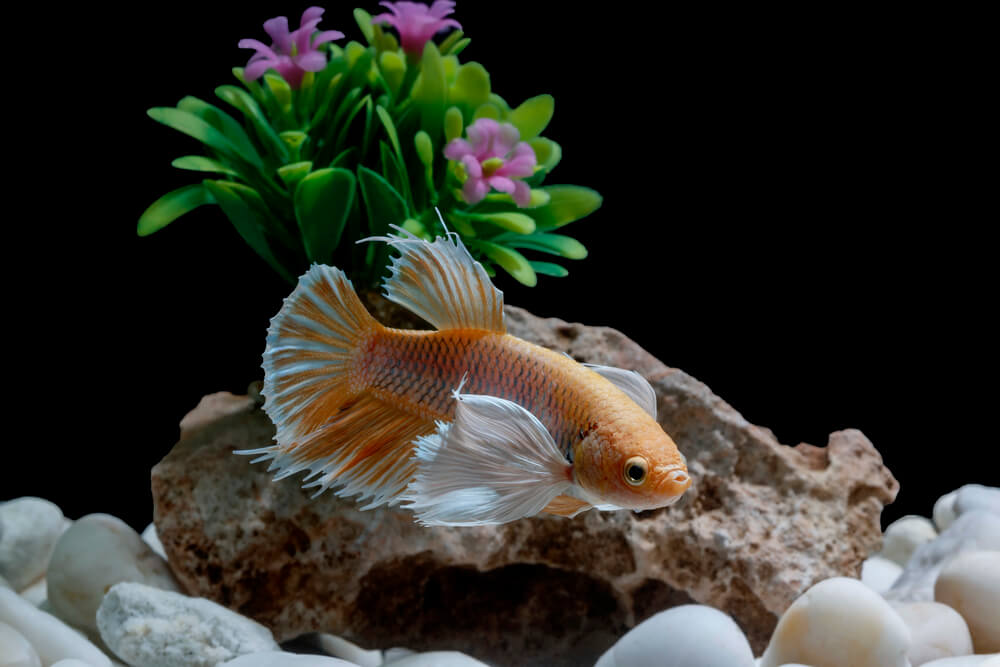
How Long Should Betta Fish Be Exposed To Light?
Betta fish need light to stay healthy and active. Without it, they can become lethargic and suffer from a lack of appetite.
It’s important for betta owners to understand how long their pet should be exposed to light in order to thrive.
The amount of time that a betta needs exposure to light will differ depending on the type of lighting used. Generally speaking, fluorescent or LED bulbs are best as these provide more natural-looking illumination than traditional incandescent bulbs.
For optimal health, bettas should have between 8-12 hours of direct sunlight per day if possible. If not, artificial lights such as those mentioned above should be used instead.
When deciding on the length of time your betta needs exposure to light, consider its activity level and general wellbeing – if it appears sluggish or isn’t eating well then it may need more time under the lamp.
Additionally, some people prefer turning off all lights at night so their pets can get enough rest; this is entirely up to personal preference but just make sure they’re getting adequate daylight during the day too!
Taking care when setting up an appropriate lighting schedule will ensure your betta has plenty of energy throughout the day and stays happy and healthy for years to come!
Factors To Consider When Choosing A Light For Betta Fish
When selecting a light source for your betta’s tank, there are several things you must take into account.
Firstly, you should choose a type of light bulb that won’t emit too much heat since betta fish come from temperate climates; this will help keep their water at the right temperature.
Secondly, look for LED lights or fluorescent bulbs with adjustable settings so you can simulate natural day and night cycles and give your betta plenty of restful darkness during nighttime hours.
Lastly, make sure the wattage isn’t too high as this could cause stress on your betta’s eyesight over time if they’re exposed to bright lights all day long.
Ensuring your betta has sufficient access to daylight hours and quality sleep periods is essential for its overall wellbeing – just like humans!
So when shopping for lighting options for your beloved pet be mindful of these factors and find something that fits both their needs and yours.
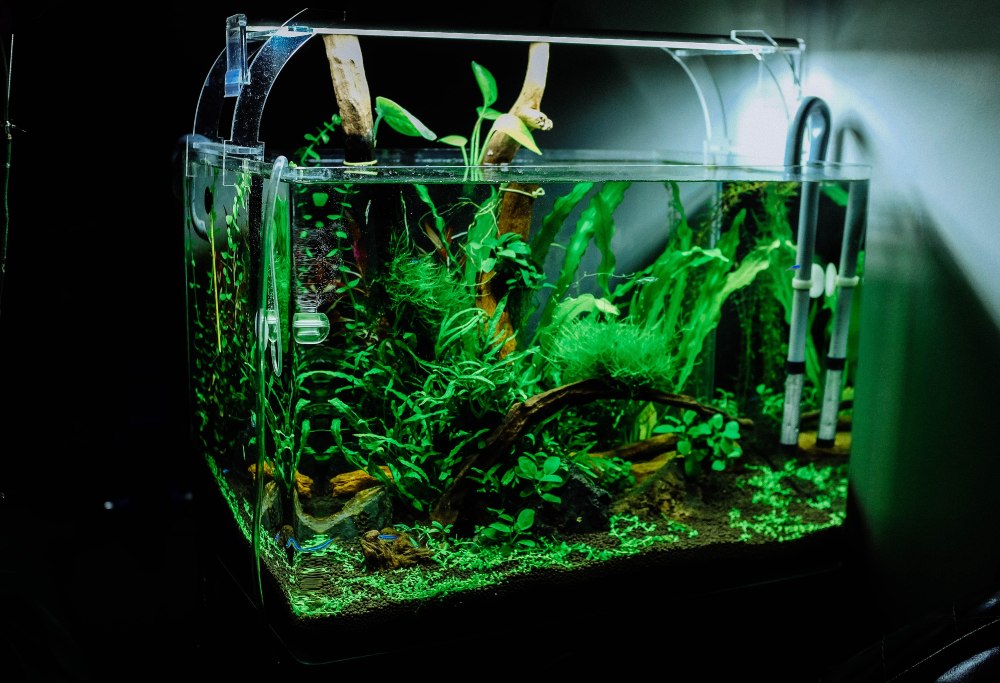
Potential Problems With Betta Fish Lighting
If the wrong type of light is chosen, there can be potential problems with betta fish lighting.
Firstly, some types of lights are too bright or strong for bettas and can cause stress and damage their eyesight. If your tank has a glass lid, it’s critical that you choose a low-wattage bulb as anything stronger will create too much heat which could harm your fish. You should also ensure that the bulbs don’t emit any UV rays since this could have negative effects on your fish’s health.
Secondly, incorrect positioning of the lights can lead to issues such as fluctuations in water temperature which can make living conditions uncomfortable for your betta. To avoid this problem, place lights away from open windows or air vents so they don’t blow hot air directly into the tank. Additionally, try to position the lights at least six inches away from the surface of the water – otherwise algae growth may occur due to increased photosynthesis caused by direct sunlight exposure.
In addition to these considerations, make sure not to leave the light on for more than 12 hours each day since excessive amounts of light can disturb your betta’s natural sleeping cycle and cause long-term health risks. Give yourself plenty of time before making a decision about what type of light would best suit your aquarium’s needs – doing research now will save both money and heartache down the line!
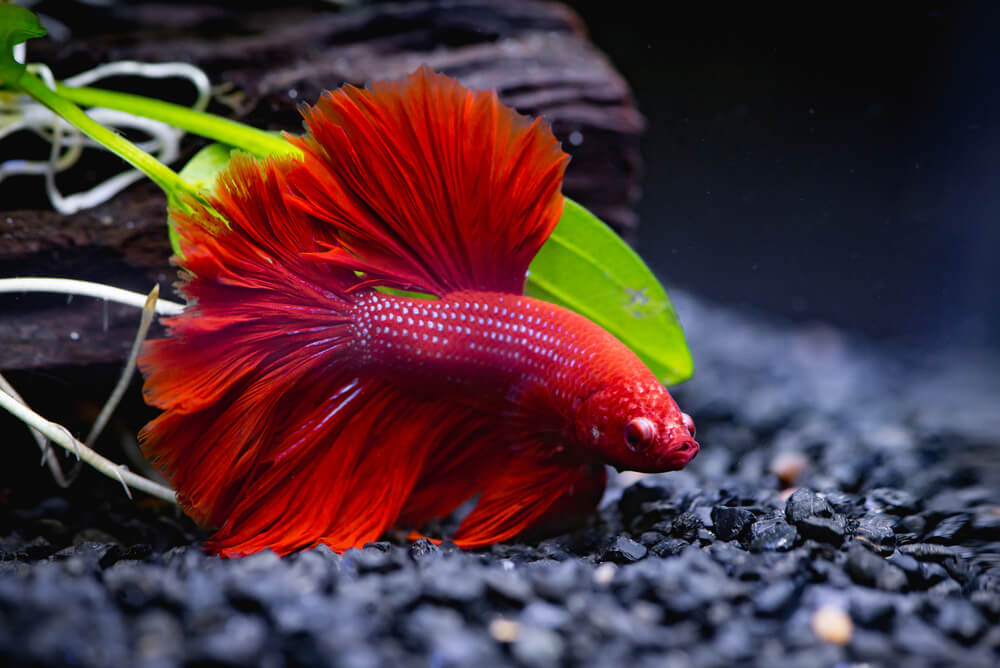
Troubleshooting Lighting Issues For Betta Fish
Betta fish need light to maintain their natural behavior and health. The right lighting helps the fish create a sense of security, which reduces stress levels and encourages them to be active. If a betta is not receiving adequate lighting, it can lead to lethargy, decreased appetite, and even depression.
When purchasing lights for your betta tank, there are two primary factors you’ll want to consider – intensity and duration. Intensity refers to how bright the light is in lumens, while duration indicates how long the light should remain on per day.
Generally speaking, 8-12 hours of lighting each day is ideal for most betta tanks; however this may vary depending on whether or not any live plants are present in the aquarium.
It’s important that you turn off all artificial lights during nighttime hours and never leave them on continuously as this could alter your betta’s sleep cycle leading to exhaustion over time.
Additionally, if you notice that your betta isn’t responding well to its environment after changing the lighting system within its tank then take immediate action by reverting back to what was working before or seeking professional advice from an aquatic specialist.
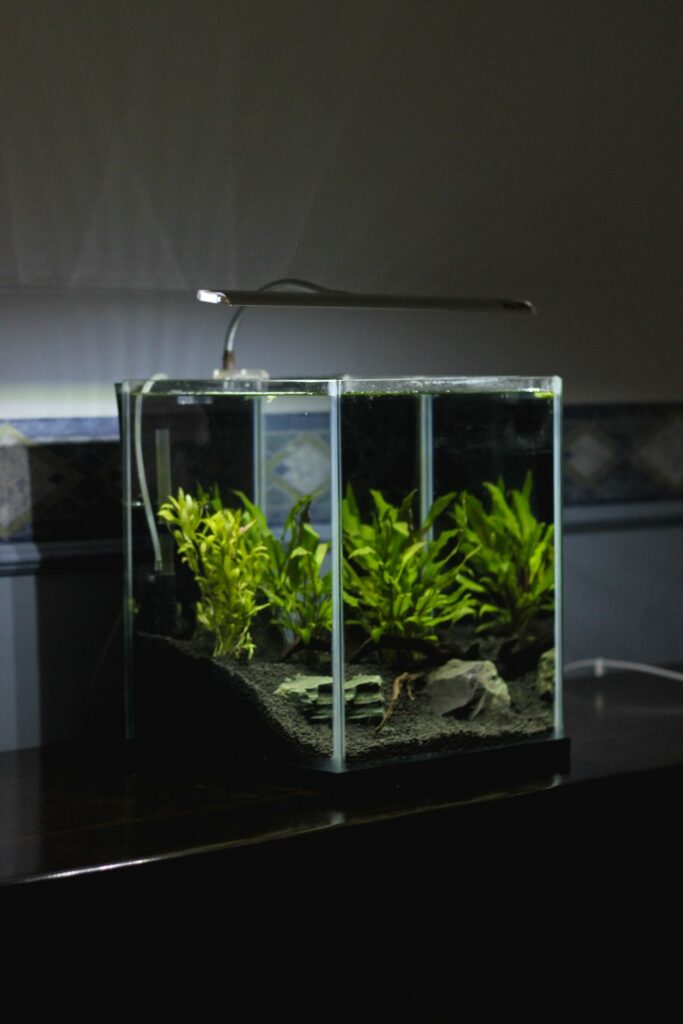
Conclusion
In conclusion, understanding the lighting needs of betta fish can be complicated.
It’s important to consider factors such as what type of light is best for them and how long they should be exposed to it.
With these things in mind, you’ll be able to create a safe and comfortable environment for your betta fish that will help ensure their health and wellbeing.
Fortunately, if you have any questions or run into problems with your setup, there are plenty of resources available to help you troubleshoot any issues you may encounter along the way.
So don’t worry: with some research and preparation, you can give your betta fish the perfect lighting environment they deserve!
